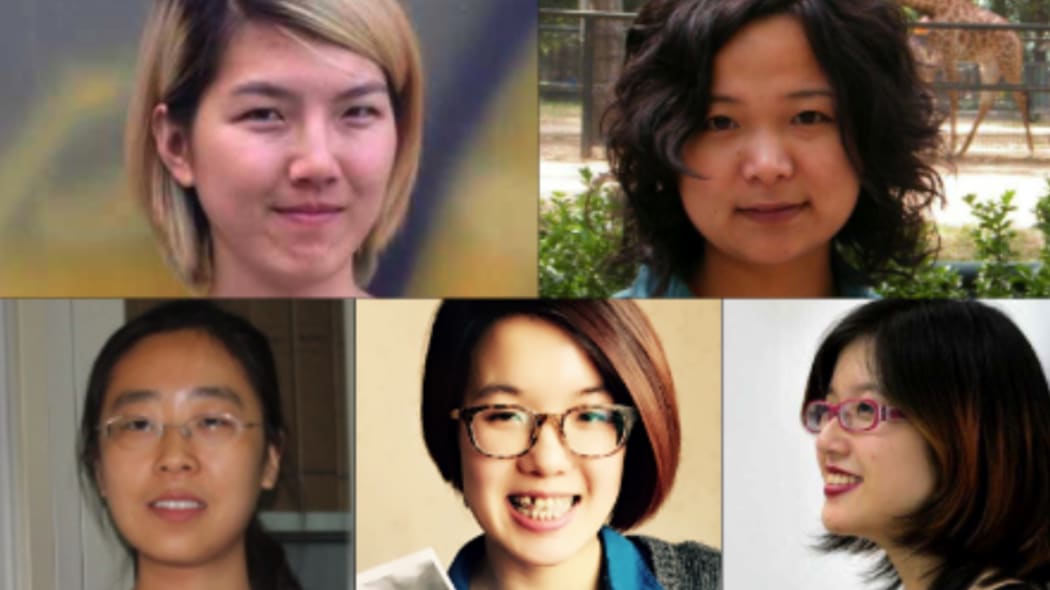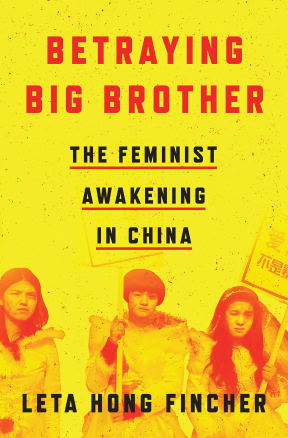The Chinese government sees the women's movement as a threat so it's a huge triumph that feminism is on the rise there, says New York-based academic Leta Hong Fincher.

A detail from the cover of Betraying Big Brother: The Feminist Awakening in China by Leta Hong Fincher Photo: Verso 2018

Mao Zedong (1893-1976) Photo: CHINE NOUVELLE / AFP
In 1949, Chairman Mao proclaimed that "women hold up half the sky" and gender equality remained an ideal of the Communist Party image until the end of the 1970s, Hong says.
But after Mao's death in 1976, the onset of market reforms in the 1980s and "breakneck economic growth in the last 15 years" gender equality has been thrown out of the window.
In an attempt to undo the damage – declining birthrates – caused by its One Child Policy, the Chinese government now actively encourages educated Chinese women to marry and have babies before the age of 30, Hong says.
This governmental push for young women to adhere to traditional gender norms by becoming dutiful wives and mothers has angered many who didn't align themselves with feminism previously, she says.

Leta Hong Fincher Photo: Nora J Tejada
The Communist party sees the subjugation of women as being necessary for China's stability as a nation, Hong says.
"Feminism basically is advocating for women's right to control their own bodies and make their own decisions. That is fundamentally destabilising for the Communist Party."
In March 2015, feminism became a true political force in China – and the government started cracking down on feminist voices, she says.
"Chinese police carried out a sweeping round of arrests in several cities on the eve of International Women's Day [and] arrested activists who were planning to celebrate by handing out anti-sexual harassment stickers."
Five activists – known as the Feminist Five – were jailed, then, as the result of a global outcry, released after 37 days without charge.

Clockwise from top left: Li Tingting, Wu Rongrong, Zheng Churan, Wei Tingting, Wang Man Photo: Amnesty International / EyePress
When the #MeToo movement swept the world at the end of 2017, Hong didn't think China's feminist activists would be about to seize on it, but #MeToo became a convenient hashtag.
China's feminist activists are innovative and continually coming up with different strategies to get around China's heavy and sophisticated internet censorship.
Before the censors caught on, women were using the emojis for rice and bunny – which when spoken aloud are pronounced “mi tu” – to tag content relating to sexual harassment or assault.
"If one person's social media account is shut down… they find another person to post something. It's constantly a cat-and-mouse game with internet censors.
"Even though there are tight constraints on social media there's still room to get your message across."
This year on International Women's Day (8 March) the Chinese government struck a big blow to the country's feminist movement when Sina Weibo – the Chinese equivalent of Twitter – shut down the popular Feminist Voices Facebook page.

Masked women hold a symbolic funeral for the death of Feminist Voices. Photo: via WIRED / CREDIT INTENTIONALLY WITHHELD
With its own political organisation and broad following, the Chinese feminist movement is viewed as a threat to the legitimacy of the Communist party, Hong says.
"Any time a group of activists becomes successful in developing a bigger network of supporters they will be seen as a threat by the government."

Photo: Verso 2018
In a country which has no sexual harassment laws and no press freedom, it's an extraordinary achievement that the feminist movement endures, she says.
"We have to remember, China is not a democracy. It's a police state. So there is effectively no rule of law. Ordinary people can be arrested and detained for any reason, really.
"[Yet] even in a powerful authoritarian state, if there is enough determination it's still possible to resist. The fact that the movement is still surviving so far is in itself a huge triumph."
Leta Hong Fincher is fluent in Mandarin and the first American to receive a PhD from Tsinghua University in Beijing. She has written extensively on Chinese feminism and gender issues, including in her previous book Leftover Women: The Resurgence of Gender Inequality in China.

